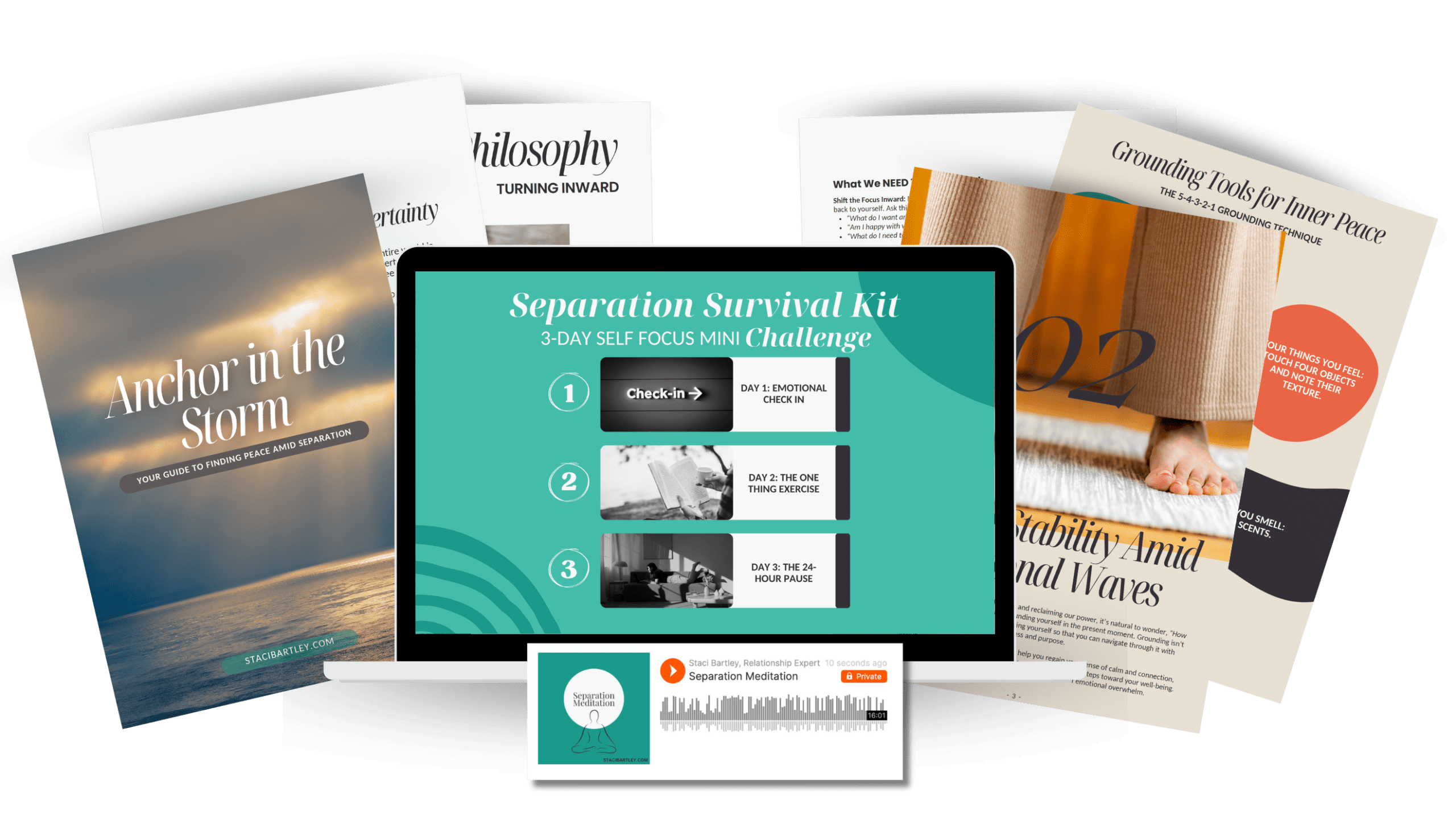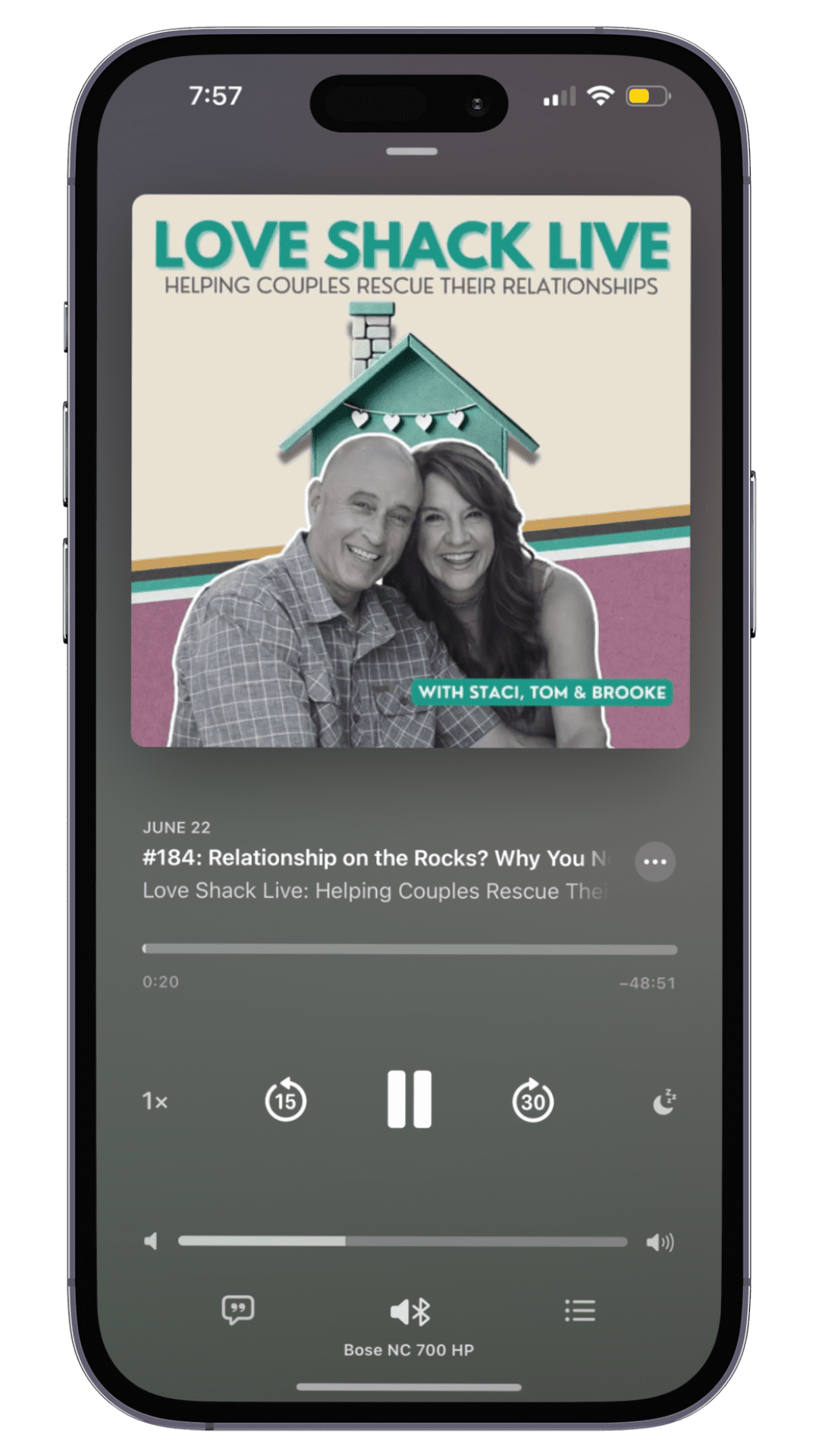Trusted By:





★★★★★
4.9 Rating On Google
Helping couples rescue their relationships since 2013
1000+Clients Mentored
Feeling Lost After Your Partner Asked for Space?
Take the first step toward clarity and healing with our Separation Survival Kit.
Inside, you’ll find:
- ? Anchor in the Storm: A guide to finding peace amid the chaos.
- ? The Calm Within: A soothing guided meditation to ease your emotions.
- ?️ 3-Day Self-Focus Challenge: Simple steps to reconnect with yourself.
This isn’t about fixing them—it’s about finding strength in YOU.

Hi, I'm Staci...
I’m Staci Bartley, a relationship mentor and divorce mediator dedicated to helping couples and singles navigate the complexities of love with practical, actionable tools. While my approach is different from therapy or traditional counseling, I focus on equipping you with the real-world skills relationships need to thrive, such as rebuilding trust, navigating conflict, and creating deeper connection. Over the past decade, I’ve had the privilege of mentoring more than 1,000 people, combining my advanced training in relational dynamics, intimacy, and trauma with my own lived experiences.
As the host of the Love Shack Live podcast and author of Feeling Like Your Marriage is Dead: A Divorce Mediator’s Guide to Ensure a Lifetime of Love, I’m here to help you build resilience, connection, and a path forward in your relationship. Relationships don’t require perfection; they require tools, and I’m here to guide you every step of the way.


